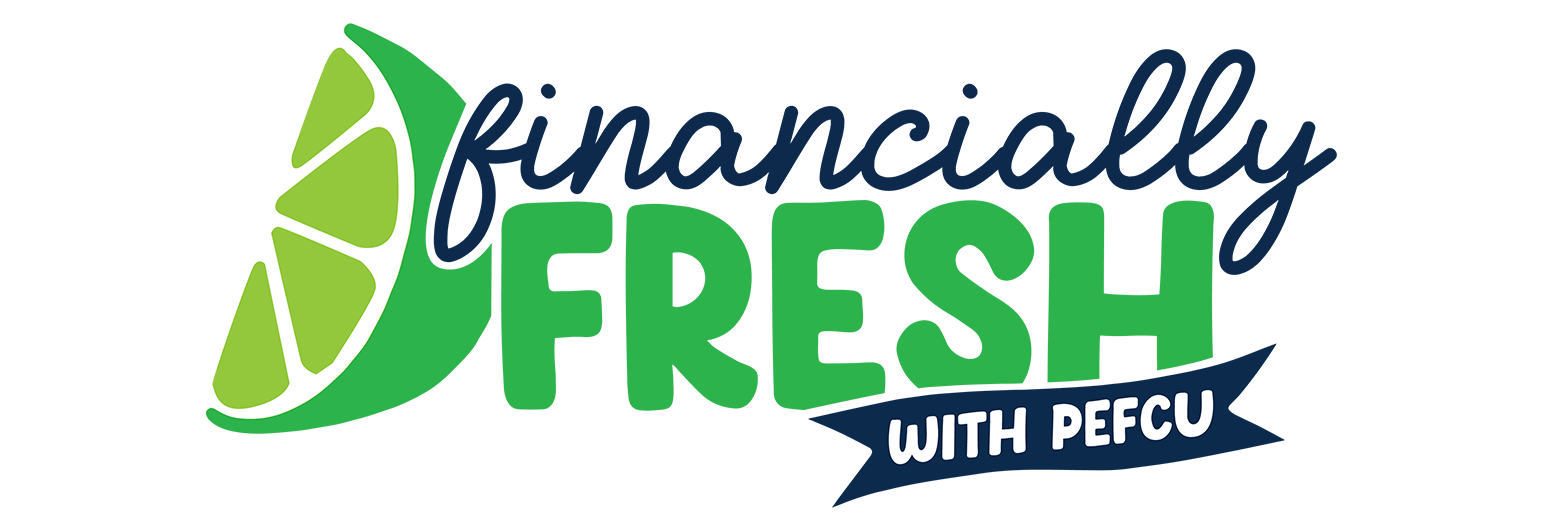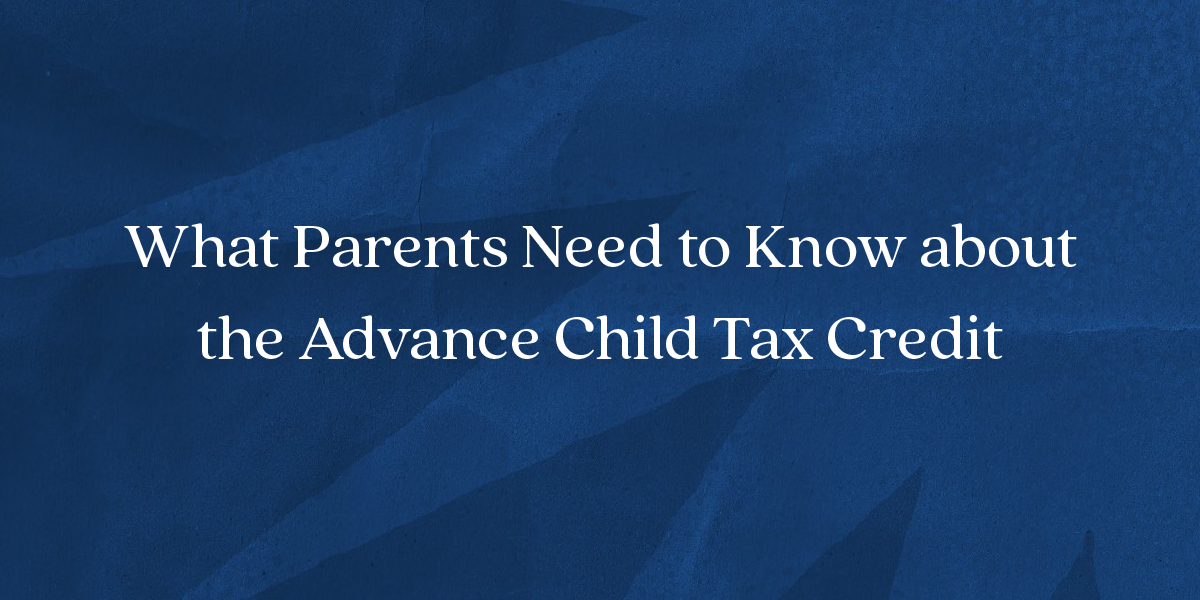July 14, 2021What Parents Need to Know about the Advance Child Tax Credit
Brought to you by KOFE, Knowledge of Financial Education
The financial crisis caused by the COVID-19 pandemic has been tough on people’s finances and lives overall. Parents, in particular, have faced some monumental challenges—from how to balance homeschooling with remote work to how to manage childcare as they’re called back to the office. In response to these challenges, the American Rescue Plan Act of 2021 expanded the Child Tax Credit, offering advance payments that are set to begin July 15.
If you are a parent with qualifying child dependents in your household, these advance payments may provide crucial funds that can help you recover financially. It’s important to understand who qualifies for advance payments, how they will be distributed, and what you can do if you prefer to opt-out of receiving those payments. This guide answers all those questions and offers tips on how you can effectively use the funds you will receive.
Advance Child Tax Credit FAQ
How has the Child Tax Credit (CTC) changed in 2021?
The Child Tax Credit (CTC) is nothing new to many parents—they claim it every year on their taxes. However, there are three key changes that the American Rescue Plan Act brought about:
- The size of the tax credit was expanded, so families get a much bigger credit this year.
- The credit is now fully refundable, so you don’t need to make a minimum income to qualify.
- There are six months of payment advances that parents can receive, which start July 15.
How much money can I get from the Child Tax Credit in 2021?
This depends on the age of the child dependents living in your home. Families receive:
- $3,000 for each child dependent age 6-17
- $3,600 for each child dependent under age 6
In previous years, the CT was $2,000 for any child dependent under the age of 17. So, this is a sizeable increase, especially for parents with young children in the home.
The advance payments will half of the total child tax credit that parents and guardians are eligible to receive. So, if you have one child aged 10 in the household, you will receive $1,500 total in advances or $250 per month. If you have a child aged 5, you would receive $1,800 or $300 per month.
How do I know if I qualify for the Advance Child Tax Credit?
Qualifying for the Advance Child Tax Credit depends on two things:
- Your income
- Having a qualifying child dependent in your household
For income, there is no minimum income required to qualify for the CTC or the advance payments. You can qualify even if you are unemployed, on Social Security, or receive no income.
There are income limits, however:
- Married couples filing jointly can make no more than $150,000 per year to qualify
- People that file taxes as Head of Household must make less than $112,500
- All other tax filing statuses must make less than $75,000 to qualify
The second factor is to have a qualifying child dependent in your household. There are eight criteria that a child needs to meet:
- The child is a U.S. citizen, national, or resident alien.
- They have a valid Social Security number.
- The child is age 17 or younger in 2021; for the $3,600 CTC, the child must be age 6 or younger in 2021.
- The child is your son, daughter, stepchild, foster child, grandchild, niece, or nephew.
- They will live with you for more than half the year in 2021.
- The child will not provide more than half of his or her own support in 2021.
- The child does not file a joint tax return.
- You will claim the child as your dependent on your 2021 tax returns.
How will the IRS determine who is eligible for Advance Child Tax Credit payments?
The primary way that the IRS is determining who is eligible is based on income tax returns. If you filed your 2020 tax returns and your income falls below the limits listed in the previous question, you qualify automatically. If you haven’t filed your 2020 tax returns, the IRS will also use 2019 tax returns.
The IRS says it has already identified 36 million families who will qualify for the advances based on tax returns. They have sent letters to these households to confirm they are eligible and will be receiving payment on July 15 if they do not opt-out.
If you do not file taxes, the IRS has set up a non-filers tool that you can use to sign up for the advance payments. Parents and guardians who are on Social Security or who don’t make enough income to file taxes can use this tool to ensure they will receive their first payment on time on July 15.
When and how will receive my Child Tax Credit payment advances?
The advances will occur monthly starting on July 15 through December of this year. It is not guaranteed that all eligible parents will receive their funds on that day. Keep in mind, for example, that some Americans are still waiting to receive their third stimulus payment.
The funds will be sent the same way you receive your tax refund and stimulus payments. If you receive those by direct deposit, then the advances will be sent by direct deposit to the same account. This is the fastest way to get your advance payments. Parents with direct deposit set up may receive their first payment on July 15.
If you receive your tax refunds and stimulus payments by mail, then you will receive the advance payments the same way. The IRS will send you a check or a debit card with the funds loaded onto your card.
What if information that would affect my Child Tax Credit payments changes?
The IRS has said that they will create a separate portal online where parents can update their information. This can be helpful if:
- your direct deposit account information changes
- you have a child or adopt a child this year
- your income decreases and you can now qualify
However, this tool is not yet available.
Can I receive Advance Child Tax Credit payments for an adopted child?
Yes! Foster parents are eligible for the CTC and advance payments if they meet all other eligibility requirements.
Which parent will receive the Advance Child Tax Credit payments?
The advance payments will go to the parent that will claim the child as their dependent on their income taxes. If you claimed your children as dependents on your 2020 income tax returns, then you will receive the advance payments.
If you co-parent and the other parent claims the child as their dependent, then they will receive the advance payments.
Can I opt-out of the advance payments for the Child Tax Credit?
Yes. The IRS has stated that they will provide an online portal where parents can opt-out of receiving these advance payments. You will still be able to claim the child tax credit on your 2021 income tax returns. You will also still enjoy the expansion in the credit. You simply won’t receive the six, monthly advances that start July 15.
Using Advance Child Tax Credit payments wisely
“There are some important things to consider as parents decide how to use these advance payments,” says Gary Herman, president of Consolidated Credit. “First and foremost, childcare may be an issue as things start to get back to normal. If your children are still learning remotely but you get called back to work in person, you may be faced with higher childcare costs. Other parents may be getting back to paying for daycare or after-school care.”
Herman encourages parents to evaluate their budgets carefully and to look at upcoming costs that may need to be factored in.
“If your children are going back to learning in a classroom, then you’ll have back to school costs that you may not have needed to cover for the past few semesters,” Herman continues. “School supplies and clothing may be bigger expenses this year if your children have been learning remotely at home over the past year.”
Advance payments may be vital as other relief programs end
Another major consideration needs to be on covering necessary expenses and bills, such as housing and food.
“So far, there has been no talk of the fourth round of stimulus payments,” Herman explains. “Moratoriums on evictions and foreclosures are set to end June 30. And many communities are stopping food programs, where families have been able to drive up and get groceries if they are in need. Covering the costs of basic needs for your family such as housing and food is imperative.”
Be aware of the potential for garnishment
Another key concern for parents is that the advance payments could be subject to garnishment by private debt collectors.
The IRS has confirmed that payments will not be garnished for any federal debts, such as back taxes, federal student loan collections, or back child support. However, the payments are not protected from garnishment by private debt collectors.
“If a debt collector has received a civil court judgment against you that allows them to garnish your wages, then you need to be aware they can garnish these advances, too.”
Understanding the impact on next year’s tax return and refund
The advances that a parent receives will not be counted as taxable income, given that they are an advance on the Child Tax Credit for your income taxes. However, they may still affect your tax returns next year.
“Receiving advances now may reduce the size of the refund you will receive next year,” Herman says. “Given that the tax credit has been expanded this year, that will hopefully offset most of the impact from the advances, but it’s still an important point for parents to consider. If you have your withholding set so you don’t receive a refund or receive as little as possible, then you may want to consult with a tax professional so you understand how the advances will affect your tax liability next year when you file.”
We’re Here to Help!
To learn more, contact us at 1-800-226-6673 or stop by one of our convenient branch locations.
Each individual’s financial situation is unique, and readers are encouraged to contact PEFCU when seeking financial advice on the products and services discussed. This article is for educational purposes only; It does not constitute legal advice. If such advice or a legal opinion is required, please consult with competent local counsel.



I did not opt out for the tax credit but did not receive a payment.
We encourage you to reach out to the IRS for more information. Here is where you can find more information, https://www.irs.gov/credits-deductions/child-tax-credit-update-portal.